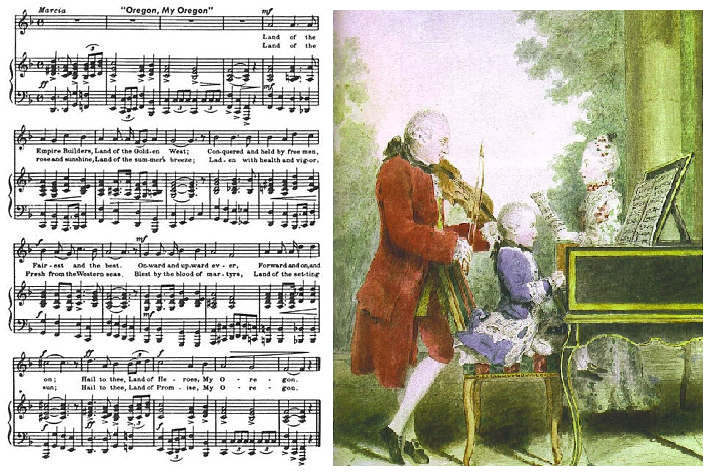Who is a data storyteller? A composer or a musician?
I’ve been mentioned and a link to my blog has been shared by SWD (thank you!). The post itself and a few comments under the post inspired me to think about who is a data storyteller? A composer or a musician? Or both?
I agree that communication isn’t a tool-specific skill like music isn’t an instrument-specific skill. But a musician selects a certain type of instrument and spends years learning one instrument.
You can create a great a visual with a pen and paper. It will work well for a presentation. But for everyday work people need interactive tools connected to live datasets. You still need to be a storyteller to build a good interactive dashboard. You still can select any tool. But you need to know your tool. Or you need to work in a team with someone who knows the tool. A composer can write a great symphony. An orchestra is secondary. But you probably will want to hear the symphony played by the best musicians from the best orchestra instead of reading the notes from paper sheets.
A tool is just a tool. You need to have a data story in your head. Then you can use a sheet of paper. Then you can use a software. If your goal is a data story for a presentation – you can draw it on a sheet of paper, take a photo and it will work. But often a goal is an interactive dashboard that will be used many times with constantly changing data that tells different stories depends on the time or filters applied.
If you’re a data storyteller you still can use a sheet of paper to draw a prototype and then it can be implemented using any tool. But usually you won’t choose a new tool for each new dashboard. You have a tool of your (your company’s, your client’s) choice. And you need to know all capabilities and limitations of the tool to tell your story well and to make sure it won’t be ruined by future data updates or different filter applied.
If you understand music you probably can play on any instrument, but you still need years of training with a certain type of musical instrument to play really good. You can plan all features on a sheet of paper like you can write down music, but you need a tool to implement them. And you need to know the tool well.
And what I want to try to highlight in my blog posts is interactivity and constantly changing (live) data behind data visualizations. And the best way to do that is using a tool I know. Then, someone who knows another tool will be able to apply the same principles to his work. But exact implementation will depend on the tool, it’s capabilities and limitations.
One can be an expert in data visualization without knowing any software. He/she will be able to draw really great static visualizations on a sheet of paper. He/she will be able to tell other person which approach is the best. But we still need to have an expert in a certain tool (Excel with VBA or Power BI with DAX) to be able to build as good as possible interactive dashboards connected to constantly changing datasets.
You have fixed axis Y on a sheet of paper. In Power BI, for example, you have to decide – should you keep Auto for axis Y start and end points, or should you enter fixed values. Fixed values probably will tell current story better, but they can ruin everything when next month data imported into the datasets or when a certain set of filters applied. These are small things in addition to the main principles of ‘static’ data storytelling, they can be software related, but they can improve or ruin your visualization. A com[poser can create a story. Then, from the same music sheet, a bad musician will produce noise and a good musician will tell you the story.
What do you think? Who are you? A composer? A musician? Both?
UPD:

A sculptor is an artists (storyteller) who selected chisel as a tool. He still need to be an artist first of all (without relations to any tools) to see what is inside a block of stone. But at the same time he still need to have a tool (knowledge and practice with the tool) to convert a stone into the story. Give a stone and a chisel to an average person – there will be nothing great created. Give a brush and paints to a sculptor – I think the result will be better than giving the same tools to an average person, but it will be much better if created by an artist who knows how to use these tools.
So, while I totally agree that data storytelling isn’t a tool-specific skill, I believe that a good storyteller with a good (for this specific storyteller) tool can turn a static story into an interactive journey thought the data stories. It’s not about a tool, but it’s about an artist/scientist with the tool (a pencil or Power BI).

